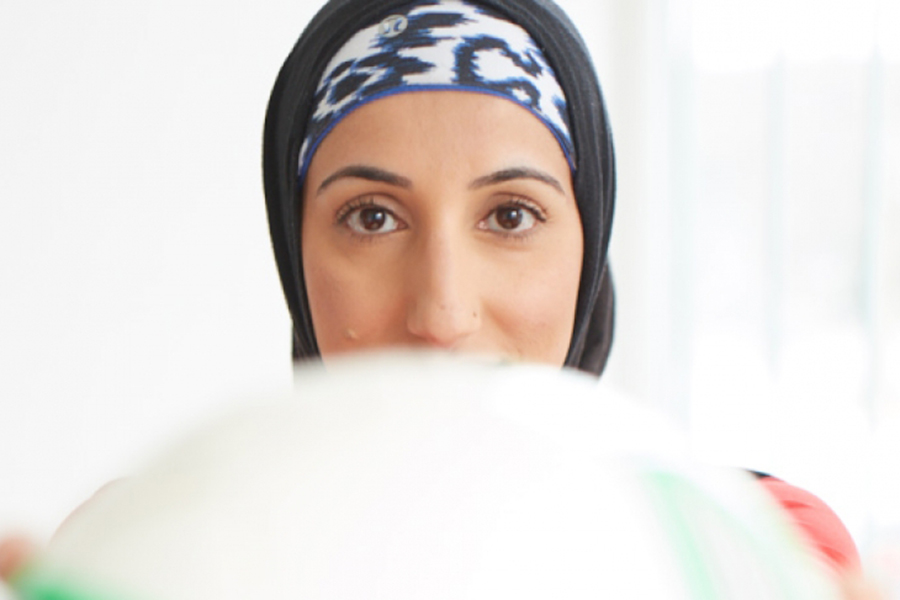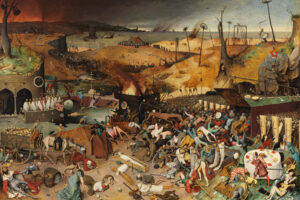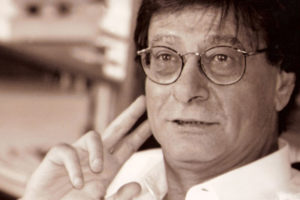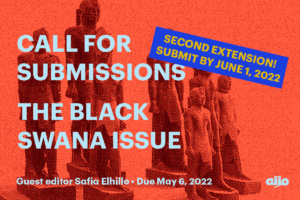
August 23, 2018
Championing Identity: Foreword for Mizna 19.1: The Playing Field
Biographical Info
This essay by Shireen Ahmed is the foreword for Mizna 19.1: The Playing Field. Click here to order your copy and subscribe today to get the latest in Arab lit!
“Why should they ask me to put on a uniform and go ten thousand miles from home and drop bombs and bullets on brown people in Vietnam while so-called Negro people in Louisville are treated like dogs and denied simple human rights?”
-Muhammad Ali, February 17, 1966
Championing Identity
Muhammad Ali, The Greatest, was an athlete-activist and used his talents in the ring to amplify his voice as a resistor of imperialism and racism. Ali knew the horrors of his own Black history in the United States and offered no rationalization for it. He was pro-Palestine and visited refugee camps of displaced Palestinians. He was committed to the truth and was unapologetic in his approach. He made people mad and uncomfortable, but did not let the detractors intimidate him. He challenged a legal system and refused to back down. He observed a religion of justice (Islam) that aligned perfectly with his platform of refusing to tolerate systemic injustices against marginalized communities. He used sports to accomplish all of this, and sports are better for it.
It is not uncommon to look at sports as a form of faith: they have billions of loyal followers -some are blind in their support and some look at it critically but still maintain strong ties. The religion of sports consists of profound and complex sets of beliefs, ideas, and principles. It has varied sets of practices among its global congregants: a passionate following, regional pride, political activism, and loyalty. It is used to engage people locally and globally. It connects people from different cultures and communities. There are moments in major competitions where millions of spectators are united in suspense, excitement, or despair because of a body flying forward, a ball spinning toward the goal line, or a swimmer’s fingers about to touch the end of the lane. There are families frantically cheering on their beautiful children who are running to the next base underneath helmets that are too big. They have dreams. There are young girls breaking through barriers in order to play and exist in the world of sports. They have a right to prosper and use the lessons of sports to form their personalities.
Sports are a vehicle of expression, inclusion, and ultimately a reflection of the state of society. The bodies of athletes used at professional levels are a commentary on socio-economic strata, white privilege, and power. Corruption at high levels within federations and executive commissions have sought to exclude women who want clothing accommodations on the pitch and on the court. They create unjust policies that police the bodies of black and brown women on the track, and they despise the young trans athletes who deserve far more encouragement and respect. They will overlook the doping of white men but tolerate the ugly racism of media that harasses melanated players.
At recreational levels, whether at luxurious community centers and training grounds or on the street and in alleys of densely populated neighborhoods, those who engage in sports envelop themselves in a pure form of expression and joy. Sports are for the people. They hold us and our beliefs. They unite us in performance, passion, and dedication. They help our minds, our bodies, and our souls. However, there are economic barriers related to opportunity and access that segregate people from populist and privileged sports. There are parents who work three jobs to pay for astronomical training fees and equipment costs. There are single mothers who sacrifice every-thing in order to give their children a shot. There are dreams that are realized off the backs of whole villages. Those villages support unequivocally and sincerely and the cycle continues as the athletes persevere and work hard.
Throughout it all, the one thing we have in these cold, murky waters of politicization is the sweet, crystal-clear belief that, inherently, sports can uplift human rights. Sports are about justice and resistance.
Athletes often become heroes and we look to them for cues and direction. Dr. John Carlos famously raised his fist on the podium after winning bronze alongside gold medalist Tommie Smith at the 1968 Olympic Games in Mexico City. This act has been forever etched into sports history. Their Black Panther salute offended white people who screamed wildly for the professional and social demise of both men, who were later blacklisted from the United State’s Olympic community. Yet, Carlos regrets nothing, “The only way we are going to win this thing is through people turning up their voices. The entertainers and the athletes, those are the public figures you see and hear every day. If they say something, people are going to stop and listen.”
Athletes have kneeled and walked off the pitch after being subjected to racialized violence. Indigenous hockey teams use sports to draw attention to the brutal colonial legacies plaguing their stolen land. Serena Williams boycotted tennis tournaments and wrote about misogynoir within the medical system and the world of sports. While we don’t expect every child or adult to be able to speak up in this manner, we hope that the seeds are being planted. It is crucial to understand that sports are a powerful tool to start conversations, create solutions, and to generate collaborations. Sports have inspired, enraged, and changed my own life.
I was an energetic little brown girl with two thick, black braids in a sea of whiteness, button noses, and blond hair. The orange and yellow polyester uniforms did nothing for my dark complexion that welcomed the sun. I craved running through the grass with the ball at my feet because for me it symbolized belonging. I knew that my existence on the field resulted in the smashing of assumptions about young Muslim women. I recognized this at the age of six.
But in 1984, my world changed. I was raised in a small Canadian coastal city and had no one to look to as a role model. No one looked like me. But on a fateful summer day, sitting too closely in front of a television set, I watched Nawal El Moutawakel blast forward and decimate her competition in the inaugural 400-meter women’s hurdles. I watched her quietly; she was so slender, strong, and heaving with exhaustion. I was stunned. A woman, not from Europe or North America or a country concerned with “saving” the Third World, had won. She was championing my identity. She was a lone woman, who raced in the roads of Casablanca and grew up to dominate at the most prestigious competition in the world. I remember watching El Moutawakel run around the track with the Moroccan flag. I knew that if my friends were watching, they would be seeing that flag for the first time.
It wasn’t long after watching El Moutawakel prosper that I experienced my first instance of racial abuse on the pitch. For people of color, we know that sports are complicated because we have to fight against oppressive systems that exist within that world. They provide opportunities for critical analysis and deep personal reflection. I bring my experiences to my work. I have written about being racially abused while playing soccer. It never affected my love for the game, but it certainly affected how I view myself as a soccer player. Am I a Muslim footballer or a footballer who happens to be Muslim? Should my identity matter to anyone else beyond me? As I get older and hopefully wiser, I am learning that we can not allow sports media to limit our beliefs and aspirations.
Sports are a vehicle to share experiences and identities. The pieces in this issue are full of emotion and relay profound experiences, whether it is relating the love of the Cleveland Cavaliers while struggling with the death of a parent or grappling with sexualized violence and power dynamics with a tennis coach. In the work contained in this issue, we feel immensely. One realizes how sports are a foundation and what grows from it can be horrible, incredible, or both. Physical exertion releases sweat and endorphins that can accompany emotions and deep struggles. The memories of cycling through the gorgeous Algerian countryside and intense supplications for a free Palestine shows us that sports evoke potent emotions.
I have carved out my career with my experiences in mind to speak and write about Muslim women and women of color in sports. Despite the fact that the sports industry is 95% able-bodied, white, cisgendered, heterosexual men, I have pushed for important conversations on racism, Islamophobia, and sexism within sports. Often, women in the margins have to work up the courage to merely exist and create. Like athletes, writers gear up and perform mentally and emotionally laborious tasks. But I fight my impostor syndrome and I’m inspired by women like Nawal El Moutawakel and my friend Fatuma Adan who fight daily in and outside of their communities by using sports as a means to heal and change the world. I think of Samia Yusuf Omar, the Somali runner who died in pursuit of freedom while crossing a raging sea, and of Katayoun Khosrowyar, an Iranian athlete, who dedicated her life to coaching women and growing the field of sports in Iran. I think about the courage of men and women who find freedom surfing the waves at the beaches in Gaza; a peace and mobility they do not have on dry land. Some days there is success and some days there is not. Nevertheless, I am motivated by these incredible people.
As a woman of South Asian descent, I revel in seeing Arab and Muslim women compete at high level sports. I watched Sara Ahmed win a gold medal at the Rio Olympics -the first gold in weightlifting for an Arab woman. I watched as the Egyptian athlete, Doaa Elghobashy, was the first woman to compete in Olympic beach volleyball in a hijab and long sleeves. They both defied the racist and misogynist violence directed at women of the MENA region by underlining the importance of representation and possibility. Sports also provide a platform for women to draw attention to gender inequality. The struggle of Iranian women, who have been banned from stadiums in Iran since 1979, has been amplified by football media and grassroots organizers. After twelve years of campaigning, they may finally have a chance to enjoy and partake in sports with peace and safety, without facing danger by dressing up as men in order to cheer and support the team they love.
Sports are ours. The khaltos and ammos who cheer and dance wondrous dabkes in the streets of Lebanon as Brazil advanced to the final stages of the World Cup illustrates our justified passion. Morocco and Senegal have brought joy to the world. We have devoured the images of athletes doing prostrations, making the sign of the cross, and whispering prayers of perseverance to the football gods. Sports are ours to help us heal from traumas caused by war and displacement. They are crucial for communities like the Zaatari refugee camp in Jordan where Syrian girls and women engage in martial arts, badminton, and basketball, and use these sports to heal and to grow. Sports are ours in the streets of Cairo, slums of Karachi, bomb-blasted alleys of Aleppo, along the beaches of Tunis, in the basements of mosques in London, the courts of Toronto, and in the fields of Bosnia. Sports will always be ours.
Sports can be a form of salvation and an opportunity to show-case the talent of our lands, the hope of our people, and the failures that break our collective hearts. We continue to believe because sports are more than a series of games, match reports, or statistics. They need to be more than commercialization that benefits a small pocket of wealthy owners. They are hope, they are hurt, and they are humanity.
Shireen Ahmed is a writer, public speaker, and sports activist who focuses on Muslim women and the intersections of racism and misogyny in sports. Her work has been featured and discussed in various media outlets. She is part of the Burn it All Down feminist sports podcast team. When she isn’t watching soccer, she drinks coffee as a tool of resistance. Shireen is currently working on her first book. She lives in Mississauga, Ontario with her family and her cat.












